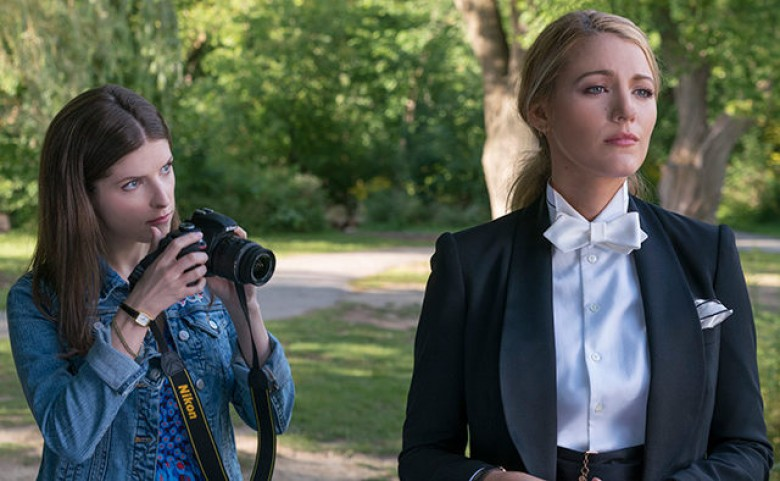My Generation (6.5/10)
Presented and co-produced by Michael Caine,
My Generation is a documentary which examines the "Swinging London" culture which burst forth in the 1960s, and how it turned the nation (and later, the world) upside-down. The way Britain went from a dreary nation, bogged-down in post-war austerity, and then suddenly transformed into the world's most colorful, hip culture (which holds an influential nostalgia for people even to this day) is a remarkable story.
Unfortunately
My Generation misses the mark in a lot of ways.
A number of significant developments do get spotlighted -- in particular the way Britain's astringent class system was suddenly starting to disintegrate. Caine in particular notes that he, as a cockney, would never have gotten cast as an upper-crust British officer had
Zulu been directed by someone British. This is perhaps the most illuminating aspect of the production, which shows how he and other "working class lads" -- actors, musicians, designers, etc. from all over Britain -- would experience a level of success unheard of at any time prior.
Naturally, a fair amount of time is devoted to The Beatles, and pop music coverage continues with The Rolling Stones and The Who. Pretty-much everything these bands contributed to the culture is sufficiently stated early on -- but for some reason the documentary keeps coming back to them, again and again, and redundancy sets-in. Things later get off-topic, with footage of the Beatles' US tours, and we're shown images of America, and (yawn) Vietnam protests -- but what does this have to do with Swinging London?
Moreover, these boy bands were not the only popular music to emerge in 1960s Britain. What about Petulia Clark, or Cliff Richards? They may not have been famous in the US but they were hugely popular in Britain at that time. Even John Barry made a big splash with the James Bond scores -- the
Goldfinger soundtrack actually
outsold all the Beatles' albums in 1964 (Barry and Michael Caine were even flatmates for a while, yet this doesn't rate a mention?).
David Bailey's fashion photography is covered, as are Vidal Sassoon's shocking new hairstyles. But strangely, despite the fact
My Generation is presented by movie star Michael Caine, it almost completely ignores British cinema of that time. Other than a few clips from some of Caine's movies, no mention is made of Britain's film production boom of that era. The
James Bond films, which were among Britain's most popular exports of the 1960s, are ignored. Apart from Bond, a lot of
Hollywood-funded movies were made in 1960s Britain --
The Pink Panther,
The Blue Max,
The Dirty Dozen,
Fahrenheit 451,
Where Eagles Dare,
Battle of Britain,
Charade,
Frenzy, etc. In fact, in the 1960s, there were as many (or more) Hollywood movies being made in Britain than in California (Jerry Goldsmith very nearly settled in London permanently because that was where he working most of the time).
Many young British actors became international stars in the 1960s -- Peter O'Toole, Albert Finney, Julie Christie, John Hurt, Susannah York, Oliver Reed, Vanessa Redgrave, David Hemmings, et al. And a good deal of British films resonated with young audiences in Britain (and beyond) --
Help!,
Blow-Up,
Tom Jones,
The Knack,
To Sir With Love, etc. But again again, none of this is mentioned.
Furthermore,
My Generation ignores British TV altogether, despite the emergence of young, revolutionary talents in that medium during the 1960s. Fresh, offbeat shows like
The Avengers and
The Prisoner were a product of how people were "thinking outside the box" in this new Britain, as were Gerry Anderson's innovative children's series.
Doctor Who (the brainchild of two young, maverick BBC producers) premiered in 1963 -- and ran for another 25 years (then it came back 13 years ago and is still going strong!). Even
Monty Python (which debuted in 1960s) is ignored. Many of these series went on to find audiences around the world.
Britain also led the way in radically-innovative new television commercials, thanks to up-and-coming maverick directors like Ridley Scott and Alan Parker. Seriously, none of this deserved a mention? The filmmakers honestly thought endless stock footage of Lennon and McCartney was more relevant?
Toward the end, the film address the ultimate downfall of "Swinging London" -- which it attributes mainly to the drug cuture (and the drug busts of several famous pop stars). And while that was a factor, the main reason (which isn't mentioned) was the insane tax hikes, which resulted in these British celebrities being squeezed for over 80% of their income.
This is what prompted the Rolling Stones to flee the UK, to be followed by The Beatles, David Bowie, etc. -- and eventually Michael Caine himself.

It's a shame
My Generation was not more well-rounded, and that it offers such an incomplete picture of the time and place it has chosen to spotlight. Another irritating aspect of the movie is that several significant figures from that era are interviewed, but they are only heard on the soundtrack -- we never see their faces! And you can hear Michael Caine conversing with them, so it is clear they were interviewed expressly for the production. You just don't get to see them -- and that gets old real fast.
A missed opportunity.


